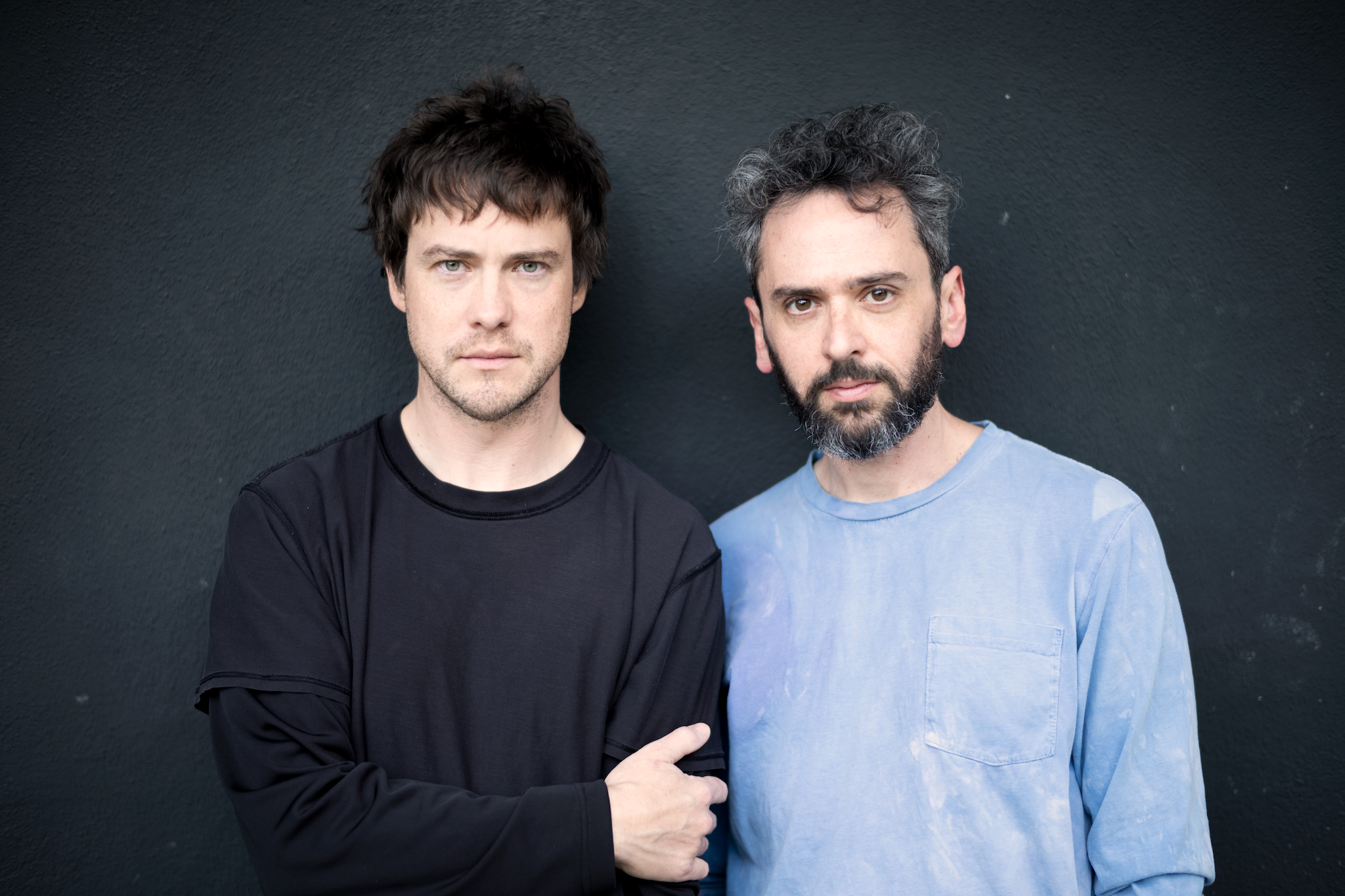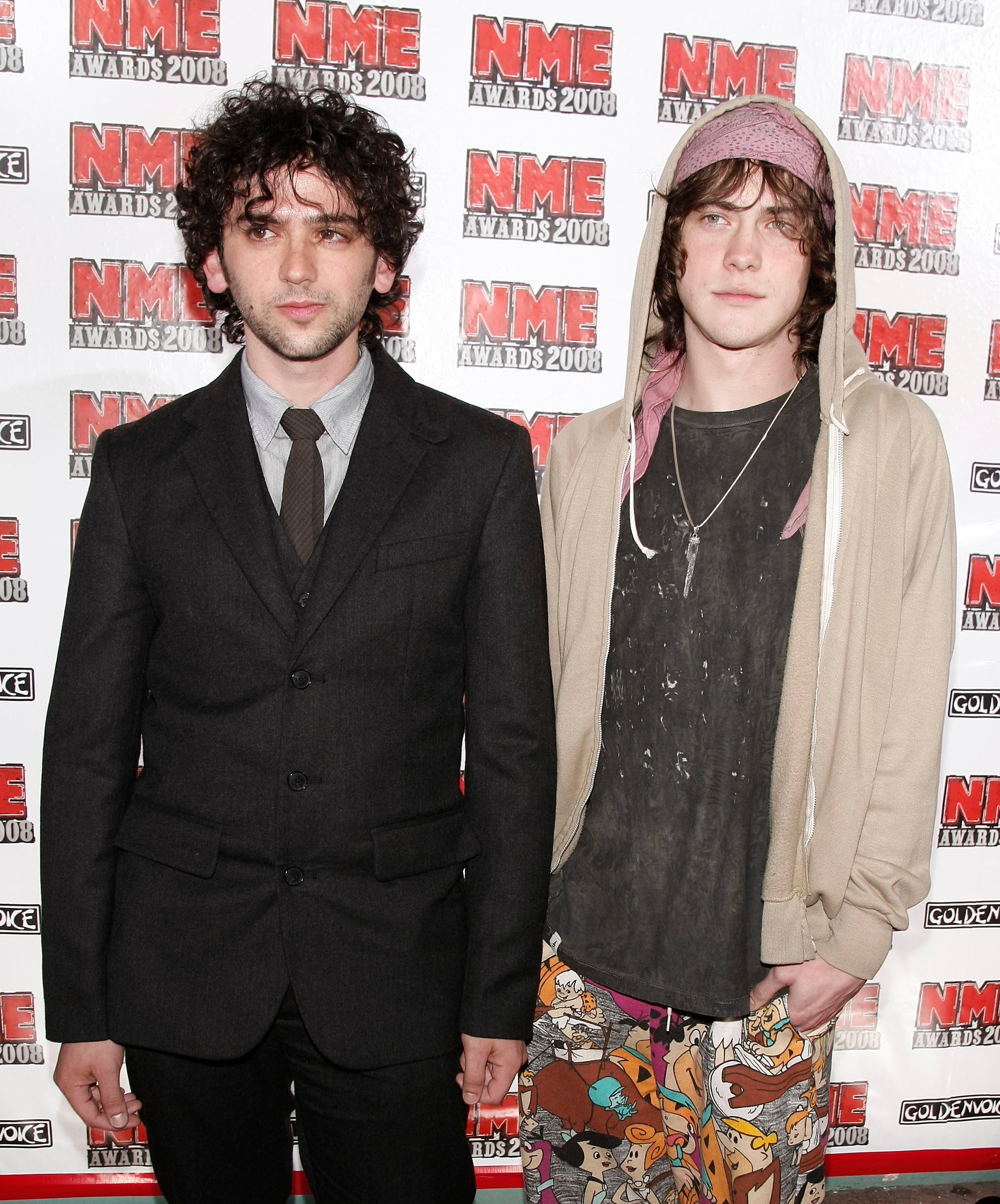Indie pop duo MGMT are all grown up: ‘This sounds whack to say now, but drugs are bad’
Nearly 20 years after releasing their coming-of-age anthem ‘Kids’, Ben Goldwasser and Andrew VanWyngarden are enjoying a surge in popularity thanks to their new album, plus a well-timed ‘Saltburn’ cameo. The pair speak to Mark Beaumont about snubbing success in the Noughties, leaving their party days behind – and why they haven’t booked a single show to capitalise on their revived fortunes

The charm of Saltburn strikes again. After Sophie Ellis-Bextor found herself reborn as a global darling in the wake of Barry Keoghan giving his undercarriage a flamboyant airing to “Murder on the Dancefloor”, it is now MGMT’s turn to reap the Salt-sync rewards.
“[Debut single] ‘Time to Pretend’ was used in that movie and somehow from that it turned into a TikTok trend,” says multi-instrumentalist Ben Goldwasser, clutching a white-flecked beard down Zoom, still bemused by online events. “I think that’s maybe our top streaming song at this point… It’s pretty wild.”
It’s not the Connecticut (via NYC) psych-pop band’s first TikTok rodeo. Out of nowhere in 2020 Goldwasser and bandmate Andrew VanWyngarden – the uncompromising duo behind the Noughties’ most cosmic dancefloor hits “Time to Pretend”, “Electric Feel” and “Kids” – unexpectedly racked up 600 million streams of their 2018 electro-noir track “Little Dark Age” after it was adopted as a trending sound on the platform.
Overnight it seemed these psych-pop Becks, who had seemingly fallen off the radar and into a fathomless black hole of sonic weirdness for the past decade, were granted a new lease of life. “It just feels like a continuation of the absurdity of our existence as a band,” Goldwasser says, “We’re just doing our thing and these things just kept coming to us. Now it’s like lightning just struck twice.”
“They’re like blessings from the Lord,” VanWyngarden laughs. “At times we’ve actively tried to find ways to break away from these three songs that we wrote when we were in college. It seems like we confused people by not trying to recreate those songs, ever.”
Predictable, MGMT’s career is not. When these Wesleyan University friends and Talking Heads/OMD/noise rock fans first emerged with their 2007 debut album Oracular Spectacular, they were the perfect modern psych proposition. Pictured on the sleeve as 25th-century tribal hippies, they captured the decade’s end with their hallucinatory hook lines and warped, intoxicating pop sonics akin to a pan-dimensional Klaxons.
With the world their oyster, though, they decided to acid-fry it. Their 2010 second album Congratulations reached No 2 in the US and is now considered something of a classic itself, but its shortage of infectious singles and its lengthy, uncompromising ventures into psych prog alienated fans of Oracular Spectacular’s kaleidoscopic synth-pop. 2013’s MGMT went even further out there – and failed to make the UK Top 40.
Little Dark Age saw MGMT return to more concise and melodic songwriting – and critical favour. New album Loss of Life continues that trend. “In some ways, it’s funny for us,” Goldwasser says, “because our approach to making music, in a lot of ways, has remained the same. We don’t necessarily set out from the beginning to be like, ‘We’re going to make an experimental record and now we’re not’ or ‘we’re going to make a pop hit now.’ We just get together and do whatever comes out.”

Loss of Life is still significantly weirder and wonkier than your average alt-rock album. In Saltburn terms, it has drunk deep from Wayne Coyne’s bathwater. There are bubbletronic noises, hallucinogenic space burbles, Beach Boys orchestrations, ghost trains rumbling past, and distorted poetry about liver and ale. “Bubblegum Dog”, a song about Nietzschean metaphors for inner anguish, sounds like David Bowie’s “Space Oddity” backed by a choir of android pooches. But the album’s madcap mentality is underpinned with accessible evocations of Velvets acid-folk, glam rock and synthpop. Take “Dancing in Babylon”. An amalgam of hypnagogic psychedelia and US drivetime radio rock, it resembles a cross between Tame Impala and Chicago. Goldwasser helpfully describes it as “like a cubist version of an Eighties power ballad. It’s fun to play with that stuff, to mix it up and jumble it together in different ways.”
Though its title suggests a grief-stricken collection, the album strikes an obtuse note midway between love and loss. The title track certainly confronts death and mortality, but VanWyngarden has imbued the album with personal moments of security and comfort. “Phradie’s Song”, like the two-year-old daughter for whom he wrote the melody, is named after his great-great-aunt Phradie Wells, a famed opera singer of the 1920s who gave it all up for the small-town schoolteacher life. “What I experienced when I became a father was a forced transition and forced adjustment into a new universe,” VanWyngarden says, venturing into a hippie-speak in tune with his music. “A new reality where I had to accept – and sort of mourn in a way – the loss of a few past selves in order to really give everything to this new being and feel what I think is a direct link to the purest love in the universe.”
A song such as “Nothing to Declare” seems to come from a place of emotional emptiness and stagnation but is rooted in warmth. Its protagonist is in a secure relationship, but still goes large on occasion. “They’re going out by themselves or smoking DMT and going on a deep journey or whatever,” VanWyngarden explains, clarifying that he doesn’t party that much these days himself. “Then you get home and you’re still swirling and tripping but you’re back in your home with your partner in this nest and there’s a newfound appreciation for coming back to it.”

Meanwhile first single “Mother Nature” is kind of a sequel to “Time to Pretend”, in which the now fortysomething MGMT are struggling to “keep our balance over zero” and “holding onto love like a stone”. “That is telling the story of us,” VanWyngarden admits. “I’m always at some point trying to pull Ben back in and get him back on our journey because I know that we both believe in the music, but sometimes Ben really wants to drift off… Sometimes I feel guilt about bringing Ben into this world.”
Memorably, “Time to Pretend” was something of a self-fulfilling mockery. It pastiched the live-fast-die-young lifestyle of the young aspiring rock star, high on hard drugs and marrying a succession of disposable supermodels – a life the band embraced wholeheartedly: VanWyngarden dated models Camille Rowe and Andreea Diaconu and claimed their 2010 song “It’s Working” could be summarised as “Yeah, we went out there and we did a lot of drugs, and it’s not that great.” Now, on “I Wish I Was Joking”, he sings “drugs will sink your mind and steal your friends”.

Was that their experience? “In a lot of ways, yes,” Goldwasser admits. “Alcohol and drugs can be incredibly destructive,” says VanWyngarden. “They dramatically and permanently change people and their personalities. We’ve lost loved ones to drugs and alcohol and so that song is saying, ‘Yes, we’re a band that has been associated with psychedelic drugs and indie sleaze, we were roped into this world and now here we are telling it like it is, saying, ‘I know this sounds really whack to say, but drugs are bad.’”
Goldwasser turns modest. “We definitely enjoyed ourselves on the road and there was a certain amount of, ‘How long is this going to last? We might as well enjoy it while we can,’ but it’s not very sustainable,” he says. “Now that we’re in our forties, it’s not a very good look.”
The title of Little Dark Age, and much of that record, referenced the band’s concerns about Donald Trump’s first presidential term. Joe Biden, however, hasn’t brought Goldwasser any sense of relief. “Nothing bad about Biden,” he says, “but I feel like there’s been this dark cloud hanging over everything, regardless of who’s sitting in the chair. It feels like the very dark undercurrents that have been bubbling up in our country – and everywhere, pretty much – still feel very present and unresolved.”
Trump has a blueprint now for how he’s going to dismantle and restructure the US government if he becomes president
When I suggest that 2024 may see America’s last meaningful vote of his lifetime, Goldwasser looks resigned: “There are definitely countries where that has happened.” VanWyngarden likens the state of America to Mike Judge’s 2006 comedy film Idiocracy, about a dystopian future in which humanity has been dumbed down by technology. “There’s a lot of denial here right now about just how truly dangerous our situation is,” he says. “Trump has, like, a blueprint now for how he’s going to dismantle and restructure the US government if he becomes president. That’s not getting enough attention, really. People were focusing a lot on both candidates being senile.” He shakes his head. “It makes me want to run away to France.”
Despite feeling the profound benefits of TikTok, MGMT are equally dismayed at the requirements of streaming success, too. “It’s almost a joke how it’s the antithesis of what you did when you put out music in the Nineties,” says VanWyngarden. “Now it’s like, if you’re not whoring yourself out and selling your soul as much as possible, then you’re weird and something’s wrong with you. Now there’s this monster, huge app, Spotify, that pays artists a 1,000th of a penny per stream if they’re lucky and they’re telling you that the only way to really get your music out there is to promote this platform for free, make all this free advertising for our platforms and also do everything about your brand and your image. It’s really strange. I don’t like it.”

Not a band to court mainstream attention, relentlessly promote themselves or play by any billionaire’s rules, MGMT haven’t booked a single show to capitalise on their revived fortunes. They also recently left Columbia to release their music independently.
“This is sort of an experiment for us,” says VanWyngarden. “We’ve made four albums, and it was always: put our blood, sweat and tears into an album and then grind away on the road, really deplete ourselves, enter a new trough of comedown and second guessing and disillusionment, and then that’s where the next phase of creation starts. What we’re trying to do now is ride on the high of releasing something that we’re proud of, and we feel like it’s been generally a very positive response. And now we’re going to go make more music and not grind away on the road.”
Don’t put a full-on cultural comeback past them, though. Life, as a wise dude once sang, can always start up anew.
The single and video for ‘People in the Streets’ will be out later this month
Join our commenting forum
Join thought-provoking conversations, follow other Independent readers and see their replies
Comments
Bookmark popover
Removed from bookmarks